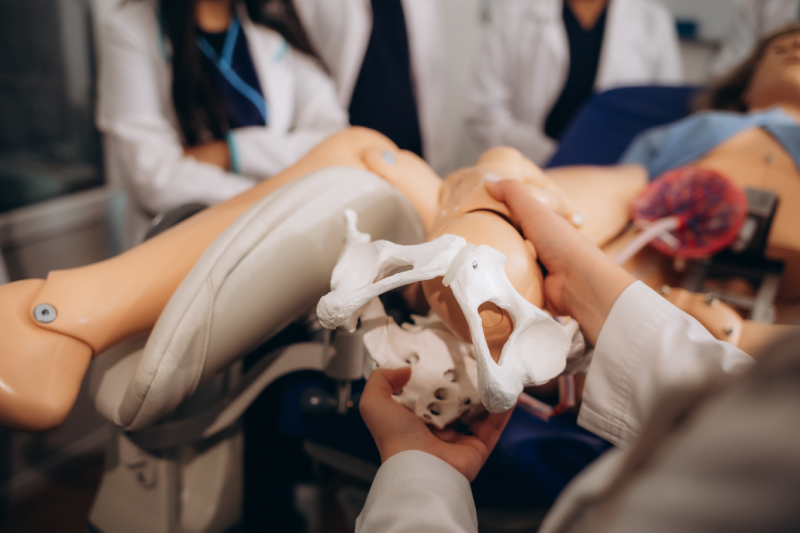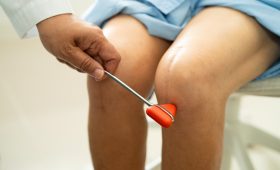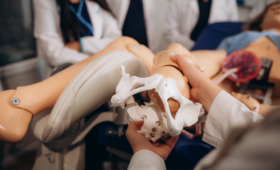What is the average cost of knee replacement surgery in the UK?
The cost of knee replacement surgery in the United Kingdom can vary significantly depending on the type of operation, the location of the hospital, and the surgeon’s experience. On average, the costs for a single knee replacement surgery in a private hospital range from £10,000 to £20,000.
These prices often include the surgeon’s fee, hospital costs, anesthesia, and a portion of the post-operative physiotherapy sessions. However, these figures are just an average indication and can be higher depending on the patient’s specific situation, additional medical needs, or the chosen clinic.
What is the average cost of knee replacement surgery in Turkey?
The cost of knee replacement surgery in Turkey is much more affordable compared to the United Kingdom. On average, the costs for a knee replacement surgery can range from $7,000 to $12,000. These prices can be less than half of the average costs in the United Kingdom. Knee replacement prices in Turkey are generally offered as all-inclusive packages that cover the entire process, including the surgical operation, hospital stay, anesthesia, medications, and post-operative physiotherapy. This makes budget planning easier for patients.
What are the main reasons for the price difference?
The main reasons for the price difference between Turkey and the United Kingdom include differences in living and labor costs, taxation policies, and the level of competition in the healthcare sector. General operating expenses and staff salaries are lower in Turkey. Additionally, the difference in exchange rates makes costs more attractive for foreign patients. These economic advantages allow clinics in Turkey to offer high-quality services at more affordable prices.
How safe are knee replacement surgeries in Turkey?
Knee replacement surgeries in Turkey are very safe when performed in accordance with international standards. Thanks to the country’s development in medical tourism, many hospitals hold prestigious international accreditations such as the Joint Commission International (JCI). These hospitals have state-of-the-art medical equipment and highly trained surgeons. A detailed pre-operative evaluation and post-operative follow-up are of vital importance for a successful outcome.
What is the experience level of surgeons in Turkey?
Surgeons in Turkey are highly experienced in knee replacement surgeries. Due to the popularity of medical tourism, these surgeons regularly serve international patients and have a wide range of case experience. Many Turkish surgeons have been educated abroad, participate in international congresses and seminars, and apply the latest surgical techniques in this field. This allows patients to undergo the operation with confidence.
What are the advantages of choosing Turkey over the UK for surgery?
The biggest advantage of choosing Turkey over the United Kingdom for knee replacement surgery is the cost saving. It offers the opportunity to have a surgery of similar quality at a much more affordable price. Furthermore, instead of the long waiting times in the UK (especially in the NHS), you can get a surgery date in a short time in Turkey. Having surgery in Turkey also offers the opportunity to combine travel with a holiday.
What are the disadvantages of having surgery in Turkey?
There are also some disadvantages to having surgery in Turkey. The most important one is the necessity to travel again for post-operative follow-up check-ups. The language barrier may require caution when choosing a hospital and surgeon, but many clinics offer professional support in this regard. The difficulty of reaching your surgeon in an emergency is another factor that should be considered.
What are the waiting times for knee replacement surgery in the UK?
Waiting times for knee replacement surgery in the United Kingdom can be quite long, especially if you plan to have surgery through the National Health Service (NHS). In the NHS, this period can extend from a few months to a year or more, depending on the patient’s condition. The waiting time is much shorter in private healthcare services, but the costs are higher. These long waiting times can negatively affect patients’ quality of life.
How does the pre-operative consultation process work?
For foreign patients considering surgery in Turkey, pre-operative consultations are usually held via online platforms. The patient sends their medical history, X-ray, or MRI images to the surgeon. During a video call, the surgeon evaluates the patient’s expectations, nasal structure, and general health condition. This meeting is a great opportunity for the patient to ask all their questions about the surgery and build trust in the surgeon.
What services are included in the price?
Prices for knee replacement surgery in Turkey are generally offered as all-inclusive packages. These packages cover the surgeon’s fee, operating room costs, the anesthesiologist’s fee, and the first few post-operative follow-up appointments. Some packages may also include airport transfer, accommodation, and interpreter services. However, additional medications like painkillers or vitamin supplements after the surgery may not be included in the package.
How long does the post-operative recovery process take?
The post-operative recovery process varies from person to person, but the first few weeks are the most intense. Most patients stand up and start walking on the first day after the surgery. Using a walker or crutches may be necessary for the first few weeks. Physiotherapy is of critical importance to strengthen the muscles and regain joint mobility. Full recovery and return to normal activities can take from 6 months to a year.
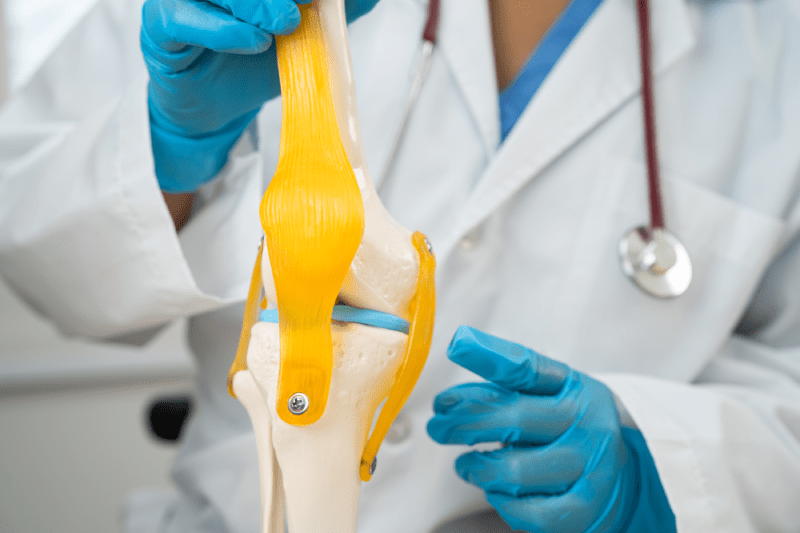
Is a visa required for patients coming from abroad?
Whether a visa is required for patients considering surgery in Turkey depends on their nationality. Citizens of many European and North American countries can travel to Turkey without a visa or with an electronic visa (e-visa). However, it is important to check the current visa requirements before traveling. Some countries may require special visa types for medical travel.
When can I travel after the surgery?
Travel after the surgery should be planned with your surgeon’s approval. Generally, it is recommended to stay in Turkey for a few more days after being discharged from the hospital to have the first check-ups and to begin the recovery process. For air travel, it is important to wear compression stockings and do leg exercises regularly to reduce the risk of blood clots.
What types of knee prostheses are used?
Today, prostheses made of different materials such as metal, polyethylene, and ceramic are used in knee replacement surgeries. The choice of prosthesis is made based on the patient’s age, activity level, bone structure, and the surgeon’s preference. Different types such as total knee replacement and partial knee replacement are available. The surgeon will determine the most suitable prosthesis for the patient’s needs.
How to choose the right surgeon for the surgery?
Choosing the right surgeon is one of the most important steps for the success of the surgery. Factors such as the surgeon’s experience, area of expertise, patient reviews, and membership in international professional organizations should be considered. A reliable surgeon will realistically evaluate your expectations, inform you about all the risks, and meticulously follow the post-operative process.
What are the potential risks of knee replacement surgery?
As with any surgical operation, knee replacement surgery has some risks. These include infection, blood clotting, loosening or dislocation of the prosthesis, nerve damage, and joint stiffness. However, these risks are minimized with an experienced surgeon and a modern hospital. You will be informed about all risks during a detailed pre-operative consultation.
What is the hospital accommodation like after the surgery?
Hospital accommodation in private hospitals in Turkey is generally quite comfortable. Patients stay in private rooms after the surgery and receive all the medical support they need. The rooms are designed with patient comfort in mind and allow for a companion. This positively contributes to the patient’s recovery process.
What is the pain level during the recovery process?
The level of pain after knee replacement surgery can be well-controlled thanks to modern pain management methods. The pain felt immediately after the surgery can be managed with painkillers prescribed by the doctor. Most patients state that the chronic pain they felt before the surgery is completely gone after the operation. There may be a slight feeling of discomfort for the first few weeks.
How important is post-operative physiotherapy?
Post-operative physiotherapy is one of the most important factors for the success of knee replacement surgery. Regular physiotherapy sessions strengthen the muscles, increase the joint’s range of motion, and enable the patient to return to normal activities more quickly. Physiotherapy is vital to maximize the results of the surgery and extend the life of the prosthesis.
When can I return to work?
The time to return to work depends on the type of work you do and your personal recovery speed. If you have a desk job, you can return to work 3 to 4 weeks after the surgery. If you have a job that requires physical strength or heavy lifting, this period can extend up to 2-3 months. It is best to talk to your doctor to determine the most suitable time.
When can I play sports after the surgery?
It is important to start sports activities gradually and with your doctor’s approval after the surgery. For the first few weeks, only light activities like walking can be done. After 3-6 months, low-impact sports like swimming or cycling can be started. High-impact sports like tennis or running are generally not recommended, as they can shorten the life of the prosthesis.
Will there be a scar after the surgery?
Yes, there will be a scar on the area where the surgery was performed after a knee replacement surgery. However, surgeons use modern surgical techniques and aesthetic sutures to minimize the scar. The scar fades over time and becomes less visible, but it does not completely disappear. Good wound care helps improve the appearance of the scar.
How long does it take for the results of the surgery to become apparent?
The results of knee replacement surgery begin to be felt immediately after the surgery. A large part of the pain felt before the surgery disappears after the operation. While it may take a few months to fully regain mobility and strength, it takes between 6 months and 1 year for the prosthesis to fully settle and the final functional recovery to take place. It is important to be patient during this process.
When is revision surgery necessary?
Knee replacement revision surgery is necessary in cases where the existing prosthesis has reached the end of its life, has loosened, become infected, or dislocated. Revision surgery can be more complex and take longer than the first surgery. Therefore, the successful completion of the initial knee replacement operation is of great importance.
How does the process work for patients coming from abroad?
For patients considering surgery in Turkey, the process usually starts with an online consultation. The patient sends their medical history and imaging results to the surgeon. After the evaluation, a travel and accommodation plan is made with the hospital. Upon arrival in Turkey, airport transfer is arranged, the patient is admitted to the hospital, and the surgery is performed. After being discharged, the patient usually continues to stay for a few more days to rest and have final check-ups.
Is accommodation and transportation provided for those coming from abroad?
Many Turkish hospitals and clinics experienced in medical tourism offer accommodation and transportation services for foreign patients. Generally, airport transfers and stays in contracted hotels near the hospital are included in the surgery packages. This makes the patients’ travels less stressful and allows them to focus on their treatment process.
What tests are done for the surgery?
Before knee replacement surgery, a series of tests are performed to evaluate your general health. These tests usually include standard blood tests, urine tests, an EKG to show heart function, and a chest X-ray. These tests are of critical importance to determine if there are any risks during the surgery and anesthesia.
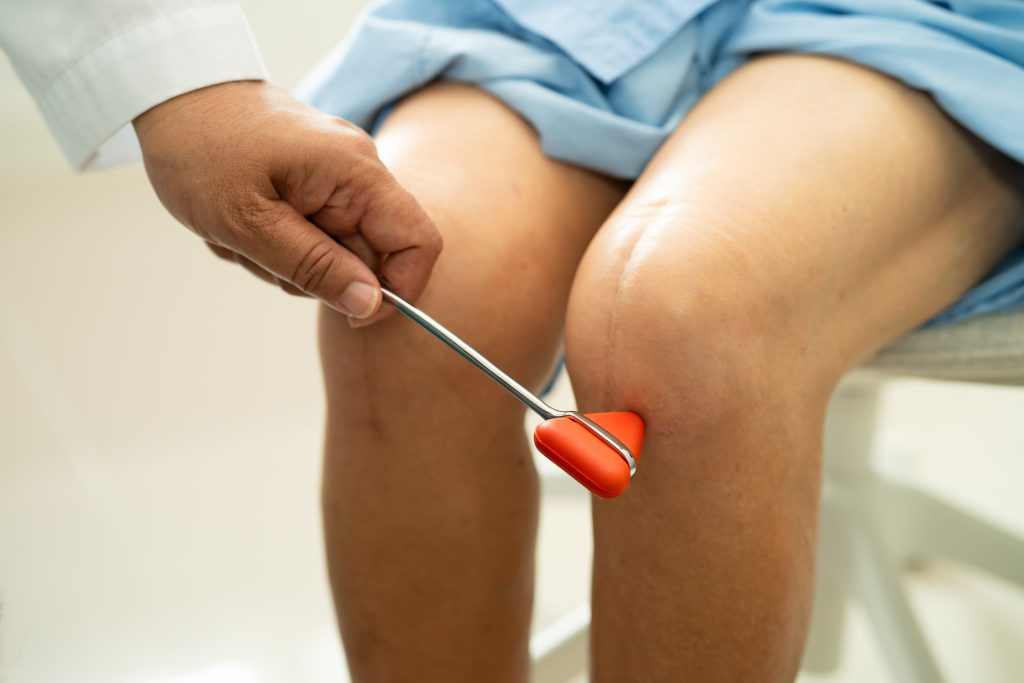
Is it necessary to pay attention to nutrition after the surgery?
Yes, nutrition after the surgery is very important to support the recovery process. It is important to consume foods rich in protein, calcium, and vitamin D for the healing of bones and tissues. Drinking plenty of fluids is necessary to maintain hydration and prevent constipation. Weight control after the surgery is also important to prevent excessive load on the prosthesis.
What symptoms are not normal after the surgery?
While some symptoms are considered normal after the surgery, some may be a sign of a serious condition that requires immediate medical attention. You should consult your doctor immediately if you experience any of the following symptoms: excessive pain, redness, swelling, or discharge in the operated area; high fever; shortness of breath; chest pain; or a noticeable swelling in the leg. These symptoms can be a harbinger of complications such as infection or blood clotting.
What medications should be stopped before the surgery?
Before the surgery, it may be necessary to stop taking medications such as blood thinners (aspirin, ibuprofen, etc.), some vitamin supplements, and herbal medicines. These medications can increase the risk of bleeding during the surgery. It is of vital importance to inform your doctor about all the medications and supplements you are using during the pre-operative consultation. Your doctor will give you clear instructions on which medications to stop and when.
What are the legal rights and patient protection mechanisms for foreign patients?
The rights of foreign patients who have surgery in Turkey are protected by the laws of the Republic of Turkey and the international accreditations of the hospital. Hospitals with international accreditations (such as JCI) are committed to complying with high patient safety and ethical standards. In addition, hospitals ensure that international patients are supported throughout the entire process through patient rights units.
How are hospitals and surgeons in Turkey supervised?
Hospitals and surgeons in Turkey are under strict supervision by the Ministry of Health. In addition, surgeons are members of professional chambers such as the Turkish Orthopedic and Traumatology Association and are obliged to follow ethical rules. Hospitals with international accreditations are also regularly supervised by these organizations. These supervisions aim to keep the quality of healthcare services and patient safety at the highest level.
When can I start driving after the surgery?
It is generally recommended to wait 4 to 6 weeks before starting to drive after the surgery. This is to ensure that you have fully regained the strength and control of the operated leg. It is important that you have the full ability to make a sudden stop or turn the steering wheel in an emergency. It is best to talk to your doctor and get their approval on this matter.
Is single or double knee replacement more common?
Generally, knee replacement surgery is performed on a single knee. However, if there is severe degeneration and pain in both knees, the surgeon may recommend operating on both knees in a single surgical session depending on the situation. Double knee surgery may require a longer operation process and recovery period, but it allows the patient to complete the entire treatment process at once.
Is hotel accommodation necessary after the surgery?
Yes, staying in Turkey for a few more days after being discharged from the hospital is necessary to spend the first stages of the recovery process more comfortably and to have final check-ups. Hospitals usually offer accommodation options in contracted hotels near the hospital. This facilitates post-operative patient follow-up.
What kind of support is available for long-term recovery?
For the long-term recovery process, it is essential to regularly continue the physiotherapy program recommended by your doctor. In addition, you can stay in touch with the hospital or clinic through video conferences and consult your surgeon directly. Support services such as nutrition counseling, wound care, and pain management are also important to speed up your recovery process.
How long does it take for the results of the surgery to become apparent?
The results of knee replacement surgery begin to be felt immediately after the surgery. A large part of the pain felt before the surgery disappears after the operation. While it may take a few months to fully regain mobility and strength, it takes between 6 months and 1 year for the prosthesis to fully settle and the final functional recovery to take place. It is important to be patient during this process.
Is it necessary to lose weight before the surgery?
Yes, reaching your ideal weight or losing excess weight before the surgery is very important for the success of the surgery and the recovery process. Excess weight can increase the risk of anesthesia during the surgery and lead to post-operative complications (infection, blood clotting, etc.). In addition, since there will be less load on the new prosthesis after the surgery, it extends the life of the prosthesis and speeds up the recovery process.
